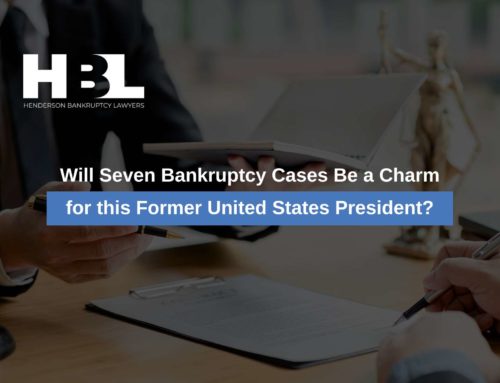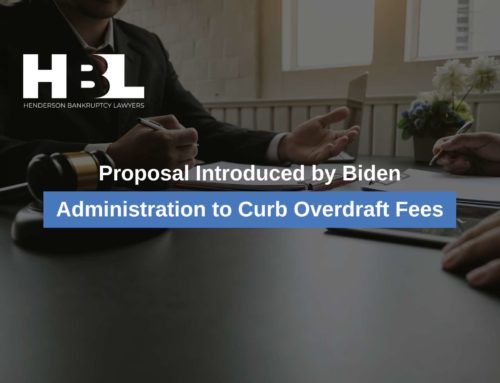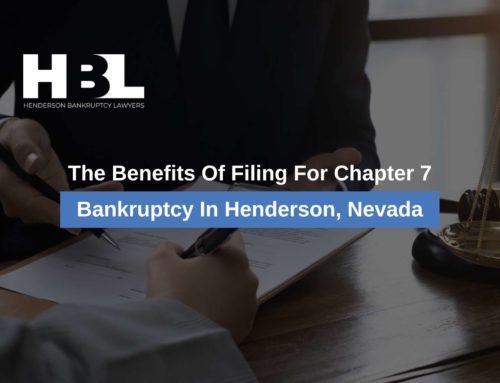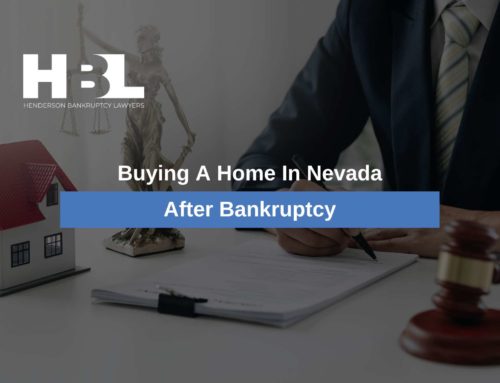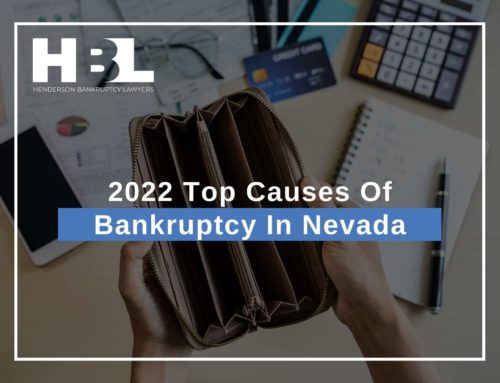Filing For Bankruptcy Vs. Using Your Retirement Savings: Which One Is Better For You?
Struggling with debts now could be solved by filing bankruptcy, but you may be worried about its long term impact on your retirement savings. You may be wondering if it is better to withdraw from your pension or 401(k) instead of filing bankruptcy. Our Henderson bankruptcy lawyers discuss when it may be advantageous to withdraw from your retirement savings or declare bankruptcy. For more detailed information, call or use our online form to request your free consultation.

Protecting Your Retirement
Despite working hard for several years and building your retirement savings, you may someday find yourself in a situation where your debt is out of control. When debt collectors are at your door, you might be considering whether it’s worth it to withdraw from your retirement savings. This can depend on a variety of factors, like how much debt you have and whether your debt is dischargeable in bankruptcy. No one expects you to be an expert in bankruptcy and retirement fund withdrawals- our bankruptcy team is standing by offering free phone consultations. We will help you decide if bankruptcy is right for you with no risk, no obligation.
Chapter 7 Bankruptcy & Retirement Savings
A huge concern for many when filing Chapter 7 bankruptcy is whether their assets will be covered by Nevada’s bankruptcy exemptions. Any assets that aren’t exempt are at risk of being seized and sold by your bankruptcy trustee. Some of Nevada’s exemptions may not be sufficient to protect the full value of some of your assets. For example, up to $605,000 equity in a home is protected in a Nevada Chapter 7 bankruptcy. Only up to $15,000 equity is protected in a motor vehicle. With strict exemptions like these in place, you may be wondering how much, if any, of your retirement savings are protected.
In Nevada, almost all types of retirement savings are exempt in a Chapter 7 bankruptcy. All retirement savings from public employment are exempt. ERISA-qualified pensions are protected up to $1,000,000. Bankruptcy trustees are highly unlikely to pursue pensions and retirement savings. However, if you believe your retirement savings won’t be exempt, you should discuss your situation with an experienced Nevada bankruptcy attorney. Additionally, it is very common to explore filing your Chapter 7 bankruptcy in Henderson with a $0 Down bankruptcy option.
Chapter 7 bankruptcy isn’t designed to work for everybody. Even if your assets would be protected in a Chapter 7 bankruptcy, you still need to show you qualify to file based on income. That means you either need to earn less than Nevada’s median income for your household size, or pass the Means Test. While the bankruptcy court will use your average income over the past six months for income comparison purposes, the median annual income for a household of one in Nevada is $54,394. For a household of two, this increases to $69,804. It next increases to $77,536 for a household of three, and so on. For bankruptcy purposes, only someone you are married to and children under the age of 18 count towards your additional household members. If your household income exceeds Nevada’s median income, you will need to prove you don’t have sufficient disposable income to pay your debts by deducting your mandatory costs from your average monthly income in the Means Test. If your income is too high to qualify under either of these methods, you should consider filing Chapter 13 bankruptcy instead.
Learn more about Qualifying for Bankruptcy in Henderson, Nevada.
Chapter 13 Bankruptcy & Retirement Savings
Maybe your income is too high to qualify for Chapter 7, or maybe you have treasured belongings that wouldn’t be protected in a Chapter 7 bankruptcy. Chapter 13 bankruptcy is a possible solution if these issues arise. Your pensions and other retirement savings accounts will definitely be safe in a Chapter 13 bankruptcy. While Chapter 7 bankruptcy simply wipes away unsecured debts, debts are reorganized and paid over the course of 3-5 years in a Chapter 13 bankruptcy. Debts are paid in order of legal costs, secured debts, priority debts, and then whatever unsecured nonpriority debts can be paid with the rest of the debtor’s disposable monthly income. This also provides you a great opportunity to catch up on payments on a secured asset you want to save from foreclosure or repossession, or on priority debts that can’t be erased by bankruptcy. For more information about filing Chapter 13 bankruptcy, call or use our online form to speak with one of our Henderson bankruptcy lawyers today.
Why You Might Not Want To Declare Bankruptcy
Bankruptcy isn’t just a magic wand that is waved, causing your debts to instantly disappear with no repercussions. There are serious and long-lasting consequences that will follow you after a bankruptcy filing. A Chapter 13 bankruptcy will remain on your credit for 7 years. A Chapter 7 bankruptcy will remain on your credit for 10 years. Filing either chapter of bankruptcy will disqualify you from most home mortgages from 2 years from the date of filing. You will also be disqualified from filing bankruptcy again, the length of time depending on the original chapter you filed and the subsequent chapter you wish to file.
If you have cosigners on your loans, filing Chapter 7 bankruptcy could impact them negatively. A bankruptcy filing could also affect your chances at opportunities in the future, such as careers in the financial industry. If you file bankruptcy without the proper knowledge, it could be for naught. Several types of debts are not dischargeable in bankruptcy, or can only be addressed in a Chapter 13 rather than a Chapter 7. You will also lose access to your credit cards during your bankruptcy and need to apply for new ones after you receive your case discharge. Debts that you don’t want to include in your bankruptcy might have to be included, and vice versa. And, once you file a Chapter 7 bankruptcy, you can’t change your mind and withdraw your case, so you will be stuck with any mistakes you make.
Withdrawing From Retirement Funds To Pay Debts
If you have sizable retirement savings, you may be wondering if it is worth withdrawing from them to avoid the negative repercussions of filing bankruptcy. This will always depend on the specific facts surrounding your case, and the answer isn’t going to be the same for everyone. But anyone withdrawing from their retirement accounts can expect severe penalties for doing so. If you withdraw before a certain age, you could be penalized up to 40 percent! So while your pension balance may look like enough to pay off your debts, in reality it would only pay off a chunk of them. And if you don’t figure out another way to pay off the rest of it, interest rates will get you back to exactly where you started debt-wise, but without retirement savings to fall back on.
Henderson’s Leading Bankruptcy Team For Quality & Affordability
Filing bankruptcy is complicated, so it generally isn’t advisable to do so without the representation of a competent bankruptcy attorney. Our Henderson bankruptcy lawyers and staff are familiar with Nevada bankruptcy law, thus, our Henderson debt relief can help you achieve ideal results in your case with the least amount of stress possible. We also offer affordable payment options, with plans starting as low as $0 down for eligible clients. To learn more, call or use our online form to request your free consultation with our Henderson bankruptcy attorneys today.
Henderson Bankruptcy Attorneys
1489 W. Warm Springs Rd., Ste. 110
Henderson, NV 89014
Phone: (702) 899-3328
Email: info@mylasvegaslawyers.com


